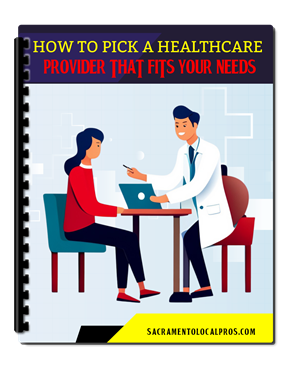Considering liposuction is an exciting step toward achieving your desired body contours.
Adequate preparation for your consultation can significantly improve the outcome of your procedure and ensure you're fully informed.
By knowing what to expect and what questions to ask, you can align your choices with your personal goals and lifestyle.
Understanding every aspect of the procedure, from candidacy to recovery, empowers you.
Get ready to make informed decisions that could positively impact your health and confidence—let's explore how you can best prepare for your liposuction consultation.
1)) Research And Choose A Qualified Surgeon
Selecting the right surgeon is crucial to ensuring the success and safety of your liposuction procedure.
Begin by seeking recommendations from trusted friends or family members, and consider reviews or testimonies from previous patients.
Verify the surgeon's qualifications, including certifications from reputable boards such as the American Board of Plastic Surgery.
It is important to schedule consultations with multiple surgeons to compare their level of expertise, approach to patient care, and ability to answer your queries.
Don't hesitate to ask about their experience with liposuction, view before-and-after photos, and inquire about their complication rates.
With thorough research and careful consideration, you'll feel confident in your decision, knowing that you've chosen a qualified professional for your procedure.
2)) Understand The Procedure And What It Involves
Understanding the liposuction procedure is a vital aspect of preparation that can help set realistic expectations and alleviate any apprehensions.
Liposuction is a cosmetic surgery aimed at removing fat deposits from specific areas of the body, such as the abdomen, thighs, or arms, through a suction technique.
It's important to note that this procedure is not a weight loss solution but rather a contouring method for individuals who have localized fat deposits resistant to diet and exercise.
During your consultation, your surgeon will explain the different techniques available, such as tumescent liposuction or ultrasound-assisted liposuction, discussing which option may be most suitable for your body type and goals.
They will also guide you through the pre-operative and post-operative process, including anesthesia, recovery time, and potential risks or complications.
By fully grasping the intricacies of the procedure, you'll be better equipped to make informed choices that align with your body goals and lifestyle aspirations.
3)) Evaluate Your Personal Health And Medical History
Evaluating your personal health and medical history is a crucial step before undergoing a liposuction procedure.
It ensures that you are a suitable candidate and that the process will be carried out safely with minimal risk.
Begin by compiling a comprehensive list of your past and current medical conditions, medications, and any allergies you might have.
It's essential to share this information with your surgeon during the consultation, as certain health issues may impact the procedure or your recovery.
Conditions such as diabetes, hypertension, or cardiovascular issues might require additional assessments or adjustments in your treatment plan.
Furthermore, be honest about any lifestyle factors, such as smoking or alcohol use, that could affect your body's ability to heal.
This thorough evaluation allows both you and your surgeon to make well-informed decisions, ultimately contributing to a smoother surgical experience and optimal results.
4)) Set Realistic Expectations For Results
When preparing for liposuction, setting realistic expectations is essential for a satisfying outcome.
While liposuction is an effective method for contouring and sculpting specific areas of the body, it is not a solution for significant weight loss or a substitute for healthy lifestyle changes.
Discuss with your surgeon what can be realistically achieved based on your body type, the areas being treated, and any limitations.
It's important to understand that results may vary depending on individual factors such as skin elasticity and the amount of fat being removed.
Results will not be immediate, as swelling and healing take time, often requiring several weeks or months for the outcome to be apparent.
By aligning your expectations with achievable results, you can approach your liposuction journey with confidence and satisfaction, knowing how it will contribute to your overall body goals.
5)) Prepare A List Of Questions For Your Surgeon
Preparing a list of questions for your surgeon is an essential part of your liposuction consultation, enabling you to gather detailed information and make well-informed decisions.
Start by writing down any general concerns you have about the procedure, such as recovery time, potential risks, and what outcomes can be expected.
Next, delve into specific questions about the surgeon's experience—ask how many liposuction procedures they have performed and about their familiarity with different techniques.
Inquire about the facility where the surgery will take place and the qualifications of the supporting medical team.
Don’t forget to ask about costs, including any additional fees that may arise during your recovery.
Having a comprehensive list ensures that you leave no stone unturned, and it empowers you to embark on the liposuction process with confidence and clarity in your decision-making.
6)) Arrange For Time Off Work And Post-Op Support
Arranging for time off work and post-op support is a crucial component of preparing for your liposuction surgery.
The recovery period requires rest and limited physical activity to ensure optimal healing, and having a proper plan in place can greatly facilitate this.
Firstly, discuss with your employer about the need for time off, and try to schedule your surgery during a period that minimizes disruption to your responsibilities.
Consult with your surgeon about how much recovery time you might need, considering factors such as the extent of the procedure and your health.
It's wise to think about enlisting help at home during your recovery, whether from family, friends, or professional caregivers.
They can assist with household tasks, transportation, and ensuring you have the support needed for a smooth recuperation.
Being well-prepared for this phase not only aids in physical recovery but also helps reduce stress, allowing you to focus on healing and achieving the desired results from your liposuction.
7)) Review Pre-Operative Instructions And Guidelines
Reviewing pre-operative instructions and guidelines is a pivotal step in ensuring a smooth liposuction experience and successful recovery.
These instructions are tailored to your specific needs and aim to minimize any risks associated with the procedure.
Typically, they will include directives on avoiding certain medications and supplements, as some can increase the risk of bleeding.
Dietary recommendations might also be provided, such as fasting for a certain period before surgery, to ensure your safety during anesthesia.
Hygiene practices, including specific instructions for showering or using antibacterial soap, may also be covered to reduce the risk of infection.
It is crucial that you understand and adhere to these guidelines, allowing you to enter surgery optimally prepared and with peace of mind.
By closely following your surgeon’s pre-operative advice, you lay a foundation for a successful procedure and a quicker recovery.
8)) Plan For A Healthy Lifestyle Change Post-Surgery
Planning for a healthy lifestyle change post-surgery is integral to maintaining the results achieved through liposuction and enhancing your overall well-being.
Recognizing that liposuction is not a weight loss solution, but rather a contouring procedure, emphasizes the importance of adopting long-term health habits.
Begin by incorporating a balanced diet rich in nutrients, focusing on fruits, vegetables, lean proteins, and whole grains to provide the energy needed for recovery and support a healthy body composition.
Regular physical activity is vital; however, start with gentle exercises and progressively work up to more intense routines as your body heals.
Stay hydrated and ensure you get enough sleep, as these are fundamental elements of healing and sustaining energy levels.
In integrating these lifestyle adjustments, not only do you enhance your surgical results, but you also invest in lasting health benefits.
By embracing these positive changes, you not only safeguard your investment but also reinforce a commitment to a healthier and more fulfilling life.
9)) Understand The Financial Costs And Payment Options
Understanding the financial costs and payment options is an essential aspect of planning for your liposuction surgery.
Transparency about expenses helps prevent unexpected financial stress and allows for informed decision-making.
Start by obtaining a detailed quote from your surgeon that includes all aspects of the procedure—from the surgeon’s fee and anesthesia to facility charges and post-operative care.
Some costs may not be immediately obvious, such as prescription medications or additional garments required for recovery, so be sure to inquire about these.
It's also beneficial to discuss payment options with the clinic, as many offer plans or financing to make the process more manageable.
Check with your insurance provider to determine if any part of the procedure might be covered, especially if the surgery is deemed medically necessary.
By fully understanding the financial implications and available payment resources, you can proceed with the reassurance that your investment is well-planned and accessible.
This preparation enables you to focus on the physical and emotional aspects of your surgical journey without financial worries overshadowing the experience.
Conclusion
Embarking on the journey of liposuction involves thoughtfully preparing for every aspect, from planning for recovery to understanding financial commitments.
By thoroughly reviewing pre-operative instructions and embracing a healthy lifestyle change, you lay the groundwork for a successful procedure and lasting benefits.
Each step, meticulously planned and executed, contributes to a smoother recovery and optimal surgical outcomes.
The anticipation of change must be balanced with knowledge and preparation, ensuring both your physical and mental readiness.
The process requires patience, commitment, and mindful planning, guiding you toward achieving the desired results with confidence and peace of mind.
Download Our Free E-book!








